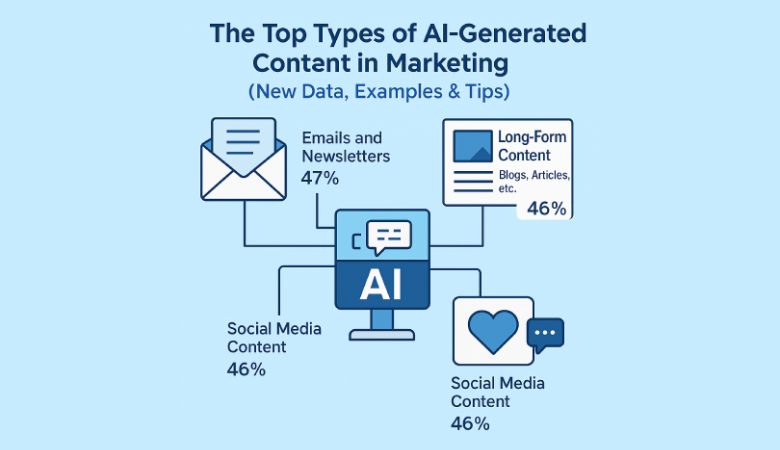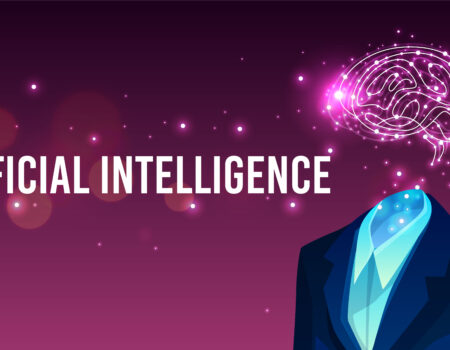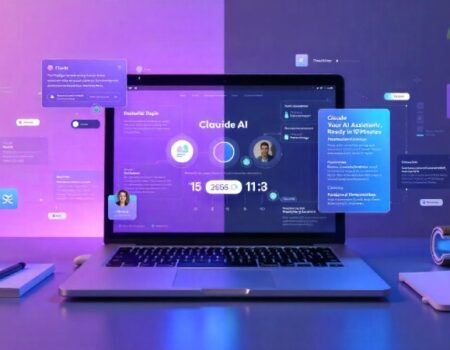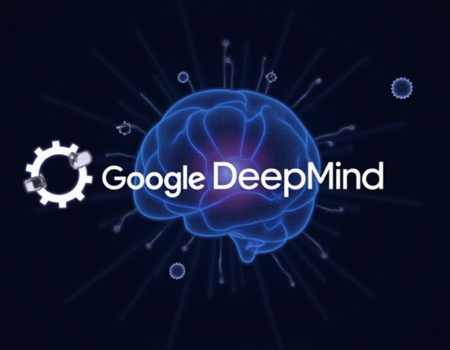The Top Types of AI-Generated Content in Marketing [New Data, Examples & Tips]
As AI continues to automate manual processes, it’s crucial for marketers to grasp the value of AI-generated content and how it can support their marketing goals by selecting the right tools and strategies.
In this blog post, I’ll explore the most popular types of AI-generated marketing content, referencing findings from the State of AI survey, which gathered responses from over 1,062 U.S. marketers.
I’ll also provide examples and practical tips to help you visualize how AI content can be used effectively. With these insights, you can strengthen your content approach and stay ahead of the competition.
Top Content Types for Generative AI
1. Emails and Newsletters (47%)
46% of marketers are now tapping into AI to craft marketing content, including emails.
Grabbing your audience’s attention with an email subject line is tough, and getting them to actually open the email is even tougher. With AI, marketers can sharpen their email strategies through:
- Timing optimization: AI-powered tools analyze recipient behavior to recommend the ideal time and day to send emails, boosting open rates, click-through rates (CTR), and conversions.
- Subject line generation: By studying the performance of past campaigns, AI can create catchy and high-performing subject lines. Stronger subject lines often lead to better open rates.
- A/B testing: AI simplifies A/B testing by sending different email versions to small audience segments, measuring the results, and pushing the best-performing version to the larger audience for maximum impact.
2. Social Media Posts (46% for Text-Based, 46% for Video/Audio)
The most common application for marketers utilizing AI for content is creating social media posts, and it’s easy to see why.
Social media marketers need to craft content that resonates with their audience, and AI-powered tools can simplify the process of managing a social media calendar. Marketers can use AI for social media posts in several ways:
- Content Creation: AI tools assist in brainstorming content ideas, suggesting relevant topics, and even generating catchy headlines for social media posts. In fact, 43% of marketers surveyed rely on AI for content creation.
- Scheduling and Posting: AI-powered social media scheduling tools can help you automatically post your content at the most effective times and even optimize your content for specific social media platforms.
- Audience Analytics: AI can help you better understand your audience through data analysis. This information can then be used to craft more effective and relevant social media posts.
3. Long-Form Content — Blogs, Articles, etc.
46% of marketing professionals find AI tools essential for creating blog posts. As someone who writes regularly, I quickly realized how AI could enhance my writing workflow.
Here are some of the best ways AI can assist in long-form content creation:
- Efficiency: By automating elements like topic ideation, research, and even drafting, marketers can save valuable time and resources. For example, 41% of respondents use AI for creating blog outlines. AI also helps with repetitive tasks like formatting, proofreading, and optimizing content for SEO, making the entire process quicker and smoother.
- Personalization: AI can analyze data on customer behavior, preferences, and past interactions, allowing marketers to tailor blog content to specific audience segments. Personalized content tends to resonate more with readers, increasing engagement and boosting conversion rates.
AI-Generated Marketing Content in 2025
In 2025, the rapid advancements in AI and its expanding role in marketing are making waves across the industry.
However, it’s important to carefully navigate the ethical and regulatory concerns to ensure that this shift brings value to both businesses and consumers.
To start, the market for AI in marketing is experiencing explosive growth. According to a Precedence Research report, the global AI market is projected to reach $2.6 billion by 2032, with an annual growth rate of 19%.
This growth is primarily driven by the increasing adoption of generative AI tools, which have become essential for crafting personalized and scalable content.
On the technology side, AI models like GPT-4 have made significant strides in understanding and generating human-like text. This advancement means businesses can now automate content creation for social media, blogs, and email marketing without sacrificing quality.
According to McKinsey, companies are not only reducing costs but also experiencing notable revenue growth by integrating AI into their marketing and sales efforts.
AI-Generated Content Marketing Pros and Cons
Pro: Efficiency and Scalability:
AI-generated content marketing takes efficiency and scalability to the next level. With AI tools, businesses can produce large volumes of content in a fraction of the time it would typically take a human. This is a game-changer for companies that need to maintain a consistent online presence across multiple platforms.
From my experience, AI has streamlined the creation of personalized email campaigns, social media posts, and blog articles, making the process faster and more efficient.
This efficiency allows my marketing team to focus more on strategy and creativity, rather than getting bogged down by the constant demands of content creation. Automating repetitive tasks helps us scale our content efforts without needing to expand our team, which results in significant cost savings.
Con: Quality and Authenticity Concerns
AI-generated content often faces criticism regarding its quality and authenticity.
Despite the advancements in AI, even the most sophisticated models can create content that lacks a nuanced understanding and emotional depth, making it seem impersonal or off-track.
According to the 2024 State of AI in Marketing, 86% of marketers who use AI for content creation make edits to the content generated by AI.
Similarly, I always make sure to carefully review and refine any AI-generated content my team and I use.
Pro: Personalization
In my view, personalized content is the real game-changer in marketing. It empowers brands to deliver more relevant and engaging experiences, which ultimately fosters customer loyalty and drives sales.
In fact, 72% of marketers who leverage AI and automation say it greatly enhances their ability to personalize customer interactions.
Moreover, 7 out of 10 marketers using these technologies agree that AI improves the overall customer experience.
For instance, AI can analyze a user’s browsing history, previous purchases, and interaction patterns to suggest products or craft tailored marketing messages.
This depth of insight enables brands to connect with customers on a deeper level, offering content that feels uniquely designed for them.
Con: Ethical and Privacy Concerns
AI in content marketing also brings up important ethical and privacy issues.
AI systems require vast amounts of data to function effectively, which can raise concerns around data privacy and security. There’s also the potential misuse of AI-generated content, such as the creation of deepfakes or the spread of misinformation.
To address these challenges, it’s crucial to implement strong data protection measures and adhere to ethical standards.
Regulations like the European Union’s proposed AI Act and California’s Consumer Privacy Act (CCPA) enforce strict data privacy requirements. These laws give consumers more control over their personal data, influencing how AI can be used responsibly in marketing.
Pro: Cost-Effectiveness
The cost-effectiveness of AI in content marketing is a significant advantage for marketing teams.
By automating content creation, the need for a large team of writers and editors is minimized, resulting in considerable savings on labor costs.
In fact, 34% of marketers agree with this benefit. These cost savings allow for more efficient allocation of resources, enabling investment in other key areas such as product development and customer support.
Additionally, AI tools help optimize marketing campaigns, leading to a higher return on investment. Nearly 68% of industry leaders who have invested in AI report a positive ROI from their investment.
This is especially advantageous for startups and small businesses aiming to make the most out of their marketing budgets.
Con: Greater Dependence on Technology
Excessive reliance on AI for content creation can lead to an overdependence on technology.
This could potentially limit critical thinking and creativity within your marketing strategies. If AI systems malfunction or generate low-quality content, it can negatively impact our marketing efforts.
My take? While AI is an invaluable tool, it should serve as a complement to—rather than a replacement for—human creativity and decision-making.
We must adopt a balanced approach, using AI for efficiency while ensuring that human oversight and creative input remain central to the content creation process.
AI-Generated Content Marketing Tips
Treat AI as a collaborator
As I’ve pointed out earlier, AI isn’t here to replace human creativity — it’s here to enhance it.
Leveraging AI for tasks such as keyword research, trend analysis, and optimizing content distribution allows you to focus more on the creative aspects that make your brand unique.
This collaboration improves efficiency while preserving your brand’s personal, human touch. For example, I use AI tools like GPT-4 for drafting content and analyzing data to streamline the process.
Create Unique, Non-Replicable Content
AI-generated drafts are just the beginning. Your final content should embody your brand’s distinct voice and perspective, ensuring it delivers real value and stands out from the crowd.
In practice, I use AI to create outlines and initial drafts, but I always add my personal touch, drawing from my own experiences and insights.
For instance, if AI generates a broad overview of a topic, I enhance it with my analysis, real-life examples, or expert interviews. This approach not only differentiates the content but also builds trust with the audience, making it more relatable and engaging.
Use Creative AI Prompts
When I hit a creative block, AI prompts are often the catalyst that gets my ideas flowing.
AI can offer fresh perspectives on trending topics or suggest related themes I might not have thought of.
Think of these AI-generated prompts as a starting point to ignite new ideas and break through writer’s block. While AI can’t match human creativity, it can spark the inspiration we need.
Prompts work both ways, so crafting effective input is key to getting high-quality results. Here are some examples:
- Trending topics: “Explore how the rise of e-commerce has changed consumer buying behavior, focusing on convenience versus the loss of personal interaction. Include examples of brands that have successfully leveraged e-commerce trends and challenges they’ve encountered.”
- Unique angles: “Analyze the role of artificial intelligence in enhancing workplace diversity and inclusion. Discuss AI tools that help identify biases in hiring and how organizations can use AI to build more inclusive work environments.”
- Related subjects: “Examine the impact of influencer marketing on consumer trust, comparing traditional advertising with influencer campaigns. Explore the effectiveness of micro-influencers versus mega-influencers in building brand loyalty.”
Use AI for Dynamic Content Optimization
Dynamic content optimization is all about adjusting your content in real-time based on live data.
Tech expert and AI enthusiast, Christopher Isak, from TechAcute, told us, “AI holds immense potential to revolutionize marketing and creativity, but its true power lies in supporting human innovation, not replacing it. The most impactful campaigns are those driven by authenticity, compelling storytelling, and emotional depth—qualities that only human creativity can truly capture.”
Partner with our Digital Marketing Agency
Ask Engage Coders to create a comprehensive and inclusive digital marketing plan that takes your business to new heights.
By using AI to handle repetitive tasks and automate processes, marketers free up time to focus on creating narratives that resonate, build trust, and form deeper connections with audiences. AI should be seen as a tool that supports the creative process, helping us elevate our work and deliver experiences that engage audiences on a meaningful level, while ensuring humanity remains at
the heart of everything we create.
At Engage Coders, we leverage AI-powered strategies to optimize digital marketing campaigns, offering services like SEO, PPC management, content creation, and social media marketing to help businesses maximize their online presence and achieve measurable growth. Contact us today!







